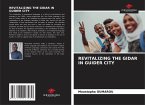The lexicon specific to French and Kiswahili updated in Bukavu is the focus of our study. We examine, on the one hand, lexemes that are unusual in the common varieties of these languages and, on the other, lexemes that are in common use, but which have acquired new meanings within the varieties under study. Given the open nature of the lexicon, only 89 items are included in the analyses. In addition, the analyses do not cover all the parameters conducive to lexical creation, but, drawing on morphology, semantics and sociolinguistics, they demonstrate the meanings that lexemes enjoy when they are integrated, and the linguistic and cultural phenomena that govern their creation. As the initial assumption was that the actualization of language is also a function of the age of the speakers, this exercise highlighted the fact that young people are more involved in the making of lexemes or the meanings of lexemes than the "not so young".
Bitte wählen Sie Ihr Anliegen aus.
Rechnungen
Retourenschein anfordern
Bestellstatus
Storno








